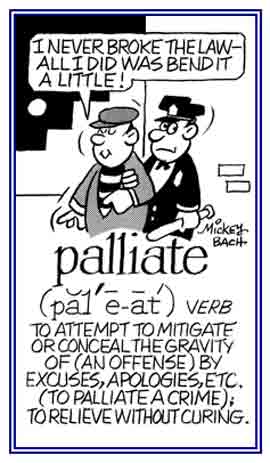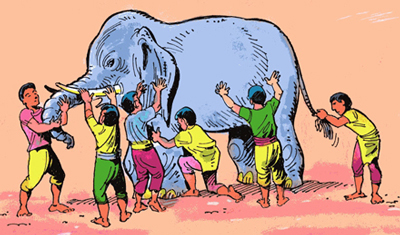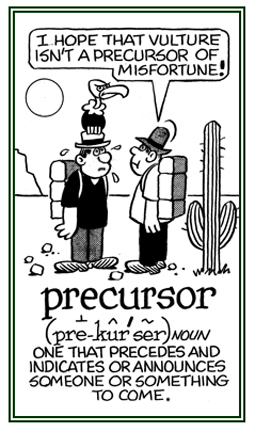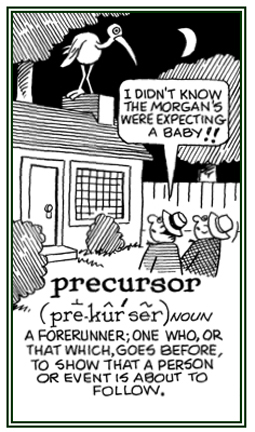-or; -our (primarily British)
(Latin: a suffix; state of, result of; he who, that which)
A suffix that forms nouns. British spelling is usually -our.
oscillator
1. A person who oscillates or vacillates in action or thought; a waverer.
2. Something that moves to and fro; a system or device that oscillates.
3. An apparatus for generating oscillatory electric currents, or for generating electromagnetic waves by means of such currents. Also, a device for generating sound waves.
2. Something that moves to and fro; a system or device that oscillates.
3. An apparatus for generating oscillatory electric currents, or for generating electromagnetic waves by means of such currents. Also, a device for generating sound waves.
A person who kisses very often: Congressman Peterson is a politician who is known as an inveterate osculator of babies on their cheeks."
ozonator
An apparatus for converting oxygen into ozone.
1. Someone who declares that faults or offences be glossed over or that mistakes or wrongdoings seem less serious than they really are: Timothy seemed to be a palliator in that he thought the car accident he caused wasn't as bad as his parents thought!
2. Etymology: from Latin palliat, "cloaked"; from palliare, "to cloak, from pallium, "cloak".

© ALL rights are reserved.
Go to this Word A Day Revisited Index
2. Etymology: from Latin palliat, "cloaked"; from palliare, "to cloak, from pallium, "cloak".
A cloak is a type of loose garment that is worn over indoor clothing and serves the same purpose as an overcoat; it protects the wearer from the cold, rain or wind, for example, or it may form part of a fashionable outfit or uniform.
Although the cartoon is presenting a verb, it also serves as an example of a pallator.

Go to this Word A Day Revisited Index
so you can see more of Mickey Bach's cartoons.
Someone who examines, or those who explore, by touching an organ or an area of a body; usually, for diagnostic reasons: As palpators, the blind men were trying to identify the various parts of the elephant's body and this illustration shows where each one is feeling in order to determine what he thinks the creature is like.
Go to this Blind Men and the Elephant page so you can see the results of their "palpations".


percolator
1. Someone who travels around for a long time or over a great distance: A peregrinator journeys or goes from place to place, as a wanderer or as a vagabond for months and months!
2. A traveler into foreign countries: In the summer, more people become peregrinators than during other times of the year.
3. Etymology: from Latin peregrinus, "foreign parts, foreigner; traveling".

© ALL rights are reserved.
Go to this Word A Day Revisited Index
2. A traveler into foreign countries: In the summer, more people become peregrinators than during other times of the year.
3. Etymology: from Latin peregrinus, "foreign parts, foreigner; traveling".

Go to this Word A Day Revisited Index
so you can see more of Mickey Bach's cartoons.
perpetrator
1. A term commonly used by law enforcement officers to designate a person who actually commits a crime.
2. A person who commits a crime or some other harmful act.
3. Someone who produces, performs, or executes something like a crime.
4. Etymology: "Perpetrator" is from 1570, from Late Latin perpetrator, from Latin perpetrare; a derivative of the verb patrare, which originally literally meant, "to perform or to accomplish in the capacity of a father"; an act that might be "good or bad"; however, in English, the verb was first used in the law (statutes) referring to crime; hence, the negative association has been the dominant meaning ever since.
2. A person who commits a crime or some other harmful act.
3. Someone who produces, performs, or executes something like a crime.
4. Etymology: "Perpetrator" is from 1570, from Late Latin perpetrator, from Latin perpetrare; a derivative of the verb patrare, which originally literally meant, "to perform or to accomplish in the capacity of a father"; an act that might be "good or bad"; however, in English, the verb was first used in the law (statutes) referring to crime; hence, the negative association has been the dominant meaning ever since.
1. Someone who causes something to continue indefinitely or to make it perpetual.
2. Anyone who prolongs the existence of someone or something or causes him, her, or it to be remembered.
2. Anyone who prolongs the existence of someone or something or causes him, her, or it to be remembered.
Anyone who casts a vote in another man's or woman's name.
pollinator
1. An insect that carries pollen from one flower to another.
2. An animal which carries pollen from one seed plant to another, unwittingly aiding the plant in its reproduction.
2. An animal which carries pollen from one seed plant to another, unwittingly aiding the plant in its reproduction.
Common pollinators include insects, especially bees, butterflies, and moths, birds, and bats.
populator
Someone who populates.
posterior
1. Situated in back of, or in the back part of, a structure.
2. The fleshy part of the human body that that a person sits on.
3. At or near the hind end in quadrupeds or toward the spine in primates.
4. In humans and other bipeds, towards the back surface of the body; also called, the dorsal.
5. In quadrupeds, a term sometimes used as a synonym for caudal.
2. The fleshy part of the human body that that a person sits on.
3. At or near the hind end in quadrupeds or toward the spine in primates.
4. In humans and other bipeds, towards the back surface of the body; also called, the dorsal.
5. In quadrupeds, a term sometimes used as a synonym for caudal.
1. A person or something that comes before an action or a situation, as in a job, a method, etc.: Taking advanced computer classes, especially programming, can be a precursor to being qualified for better paying jobs with businesses or individuals.
2. A person, animal, or thing that happens before and indicates the approach of someone or something else; a harbinger or foretelling: The budding of tree leaves is a precursor of spring and so is the sight of certain birds, such as robins.
3. Someone or something that comes before and is often considered to lead to the development of another person or thing: Small tremors can be precursors to earthquakes.

© ALL rights are reserved.

© ALL rights are reserved.
Go to this Word A Day Revisited Index
2. A person, animal, or thing that happens before and indicates the approach of someone or something else; a harbinger or foretelling: The budding of tree leaves is a precursor of spring and so is the sight of certain birds, such as robins.
3. Someone or something that comes before and is often considered to lead to the development of another person or thing: Small tremors can be precursors to earthquakes.
Lightening is almost always the precursor to thunder.
6. An individual who held a position or a job before someone else: Being a skilled writer was Mark's precursor to being a full-time reporter for the local newspaper.



